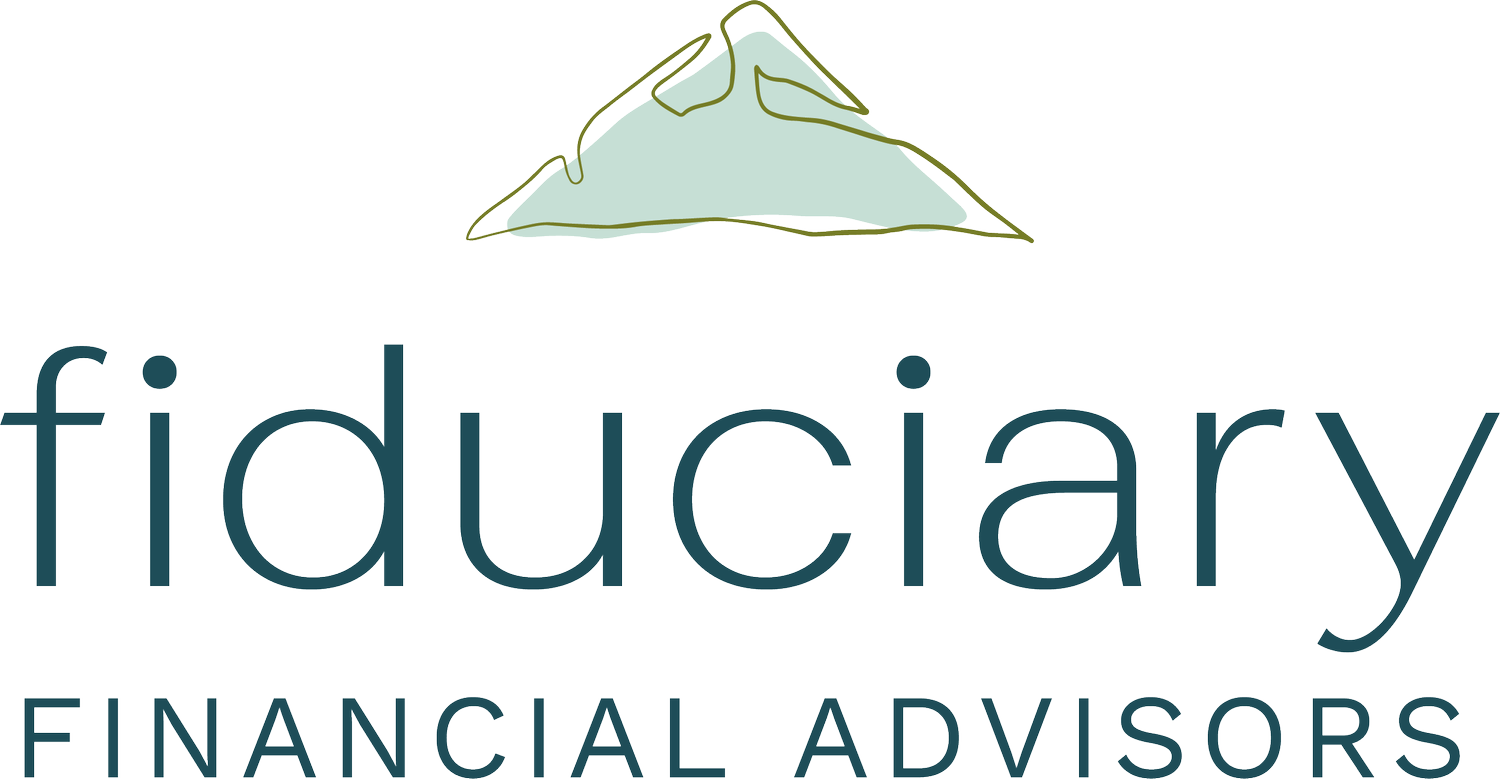Moving Across the Country: From For Sale to Fully Settled
Moving is one of life’s bigger transitions—emotionally, logistically, and financially. Whether you’re relocating for a new job, upsizing for a growing family, downsizing into retirement, or chasing a new lifestyle, the ripple effects of a move go far beyond the moving truck.
Since my husband and I were married almost 12 years ago, we’ve moved quite a bit. We’ve lived in Indiana, Florida, Michigan, California, South Carolina, and Idaho all within that time frame. It’s been a gift to chase career dreams and adventure as a family, but it doesn’t come without difficulty.
Most recently, we made a move that reshaped my family’s life: relocating from Charleston, South Carolina to Boise, Idaho. On paper, it might have looked straightforward. In reality, it held financial decisions, emotional transitions, and logistical implications — all at once.
As a financial planner and someone who has lived this personally, I want to share both the practical money considerations and the less-discussed emotional and community impacts of moving. With the right strategy, a relocation can become an opportunity to strengthen—not derail—your financial foundation.
1. Understand the True Cost of Moving
Many people underestimate how expensive relocating really is. Beyond movers or truck rentals, total costs often include:
Realtor commissions and closing costs
Home repairs, staging, or cleaning
Storage fees
Travel and lodging
Temporary housing
Utility deposits and installation fees
New furniture or appliances
Overlapping rent or mortgage payments
Pro Tip:
Build a full moving budget before committing. Add a 10–20% buffer for surprises. If your move is job-related, confirm which expenses are reimbursed—and understand the tax treatment of those benefits. (Pro tip: not all states consider reimbursement of moving expenses nontaxable!)
2. Cash Flow Is King During a Move
Relocations tend to compress expenses into a short period of time. Even financially positive moves can feel stressful if cash flow gets tight.
Common pressure points include:
Carrying two housing payments at once
Paying for a move before a home sale closes
Delayed security deposit refunds
Employer reimbursement delays
Pro Tip:
Stress-test your emergency fund. Timeline planning with your cash flow can become critical.
3. The Housing Decision Has Long-Term Impact
Housing affects far more than your monthly payment. Property taxes, insurance, HOA dues, utilities, maintenance, and commuting costs all shape long-term cash flow.
Key questions to ask:
Is this payment sustainable if income changes?
Are property taxes materially different from my current state?
Will utilities or insurance costs increase?
How long do I realistically plan to stay?
4. State Taxes Can Make a Big Difference
Crossing state lines can dramatically alter your tax picture. Differences may include:
State income taxes
Capital gains treatment
Property and sales taxes
Estate or inheritance taxes
A move from a low-tax state to a higher-tax state (or vice versa) can meaningfully impact your ability to save, invest, or spend.
Pro Tip:
Run a side-by-side comparison of your current and future tax burden before moving—especially if you’re a high earner, business owner, retiree, or receive equity compensation. Taxes usually don’t decide the move for you, but they can’t be overlooked!
5. Job Changes and Benefits Transitions Add Complexity
If your move involves a new employer, benefits may change more than expected:
Health insurance plans and networks
Retirement plans and vesting schedules
Bonuses, equity, or compensation structure
6. Insurance Needs Shift When You Relocate
Relocating should trigger a full insurance review:
Homeowners or renters insurance
Auto insurance (rates vary widely by zip code)
Umbrella liability coverage
Health insurance provider networks
Pro Tip:
Always re-shop auto and home insurance within 30 days of a move—premiums can change dramatically based on location.
7. The Emotional Cost Is Real—and Often Underestimated
This part never shows up in spreadsheets.
Leaving Charleston meant leaving familiar routines, close friendships, and a place that felt like home. Even when a move is intentional and exciting, there’s often a quiet grief that comes with it.
What helped:
Giving ourselves permission to feel unsettled
Maintaining old relationships intentionally
Remembering that hard is not the same thing as bad.
Major transitions take time—emotionally and financially.
8. Rebuilding Community Is Part of the Plan
Community doesn’t magically appear—it’s built.
Let your financial planner concentrate on the numbers. You’ll be spending energy getting plugged in and finding your people.
Community may not show up on a balance sheet, but it’s what makes a city feel like home.
Pro Tip:
Keep a list of the wins, the prayers answered, and the ways that your move came together. You’ll be grateful for the written reminder of the good when you have a hard day.
A move is more than a change of address—it’s a financial and personal reset point. When planned carefully, relocation can align your lifestyle, values, and long-term goals. Without planning, it can quietly create financial drift.
If you’re preparing for a move or have recently relocated, this is one of the best times to revisit your income, expenses, savings, insurance, tax strategy, and overall financial plan.
If you’d like help integrating a move into your broader financial plan, let’s connect. Working with a fiduciary financial planner can bring clarity, strategy, and peace of mind during one of life’s biggest transitions.
Recent Articles Written by Kristiana:
Fiduciary Financial Advisors, LLC is a registered investment adviser and does not give legal or tax advice. Information presented is for educational purposes only and does not intend to make an offer or solicitation for the sale or purchase of any securities. The information contained herein has been obtained from a third-party source which is believed to be reliable but is subject to correction for error. Investments involve risk and are not guaranteed. Past performance is not a guarantee or representation of future results.
Fiduciary Financial Advisors does not give legal or tax advice. The information contained does not constitute a solicitation or offer to buy or sell any security and does not purport to be a complete statement of all material facts relating to the strategies and services mentioned.
Dear 2025: Progress, Perspective, and Planning for What Matters
Dear 2025,
As you come to a close, I find myself reflecting not just on the numbers, the charts, or the goals we set back in January—but on the lessons, the people, and the quiet moments of growth in between. You were a year that stretched me, surprised me, and deeply blessed me.
You reminded me that financial planning is never really about money.
It’s about the new baby that turned a spreadsheet into a story about protection and possibility.
It’s about the brave career change that required a leap of faith—and a solid financial plan to back it.
It’s about the families who downsized, upsized, relocated, rebuilt, and reimagined what “home” means.
It’s about the widow who learned, with courage and grace, how to take control of her finances for the first time.
It’s about the clients who finally said, “I’m ready,” and chose progress over perfection.
You displayed that behind every account balance is a human being doing their very best.
This year, I saw firsthand that peace of mind is often a far more powerful motivator than maximizing returns. That simplicity can feel like success. That boundaries matter just as much in life as they do in money. That steady and consistent doesn’t make headlines—but it builds lives.
I learned (again) that control is an illusion—but preparation is a gift.
Markets moved. Rates shifted. Headlines changed daily. And yet, the clients who stayed grounded in their plan slept better. They didn’t panic at every dip. They didn’t chase every trend. They trusted the process—and themselves. And that is something no market downturn can ever take away.
2025, you also reminded me how deeply grateful I am.
Grateful for the trust my clients place in me with their dreams, their worries, their “what-ifs,” and their very real fears. Grateful for the conversations that go far beyond investments—about aging parents, growing families, burnout, purpose, and what “enough” really looks like. Grateful for the reminder, again and again, that this work is not transactional—it’s relational.
I am grateful for the clients I’ve had the privilege of working with for years, and just as grateful for the new clients who are newly organizing their financial lives with me.
2025, you reinforced that resilience isn’t loud. It shows up quietly: in automatic contributions, in sticking to the plan when the news reports are screaming for doomsday reactions, in choosing to invest even when the future feels uncertain, in asking for help when doing it alone no longer works.
And as I look ahead, I carry your lessons forward with intention.
Into 2026, I carry:
— A deeper commitment to clarity over complexity.
— A continued focus on values before numbers.
— A strong belief that financial planning should feel empowering, not overwhelming.
— A promise to continue showing up with honesty, education, and heart.
To my clients: thank you for letting me walk alongside you this year. Thank you for the emails, the questions, the check-ins, and the trust. Thank you for allowing me into your lives during some of your biggest transitions. It is a responsibility I never take lightly.
If 2025 taught us anything, it’s this: life doesn’t move in straight lines—but progress still happens. Often quietly. Often imperfectly. Always meaningfully.
Here’s to the lessons we keep.
Here’s to the growth we didn’t see coming.
Here’s to what’s next.
With deep gratitude,
Kristiana
Recent Articles Written by Kristiana:
Fiduciary Financial Advisors, LLC is a registered investment adviser and does not give legal or tax advice. Information presented is for educational purposes only and does not intend to make an offer or solicitation for the sale or purchase of any securities. The information contained herein has been obtained from a third-party source which is believed to be reliable but is subject to correction for error. Investments involve risk and are not guaranteed. Past performance is not a guarantee or representation of future results.
Fiduciary Financial Advisors does not give legal or tax advice. The information contained does not constitute a solicitation or offer to buy or sell any security and does not purport to be a complete statement of all material facts relating to the strategies and services mentioned.
5 Money Habits That Separate Wealth Builders from Wealth Drainers
In 2025, financial success looks different. The world is changing quickly, and there’s always a new shiny object trying to grab our attention. With the cost of living rising—and with AI-driven investing, digital banking, and new remote income streams—the gap between wealth builders and wealth drainers is wider than ever.
The good news? You still have control.
Millionaires aren’t made by the income they earn—they’re made by intentionality and the ability to consistently live below their means. Your daily money habits, not your salary, determine whether your finances grow or shrink.
Here are five money habits that separate people who build wealth from those who unknowingly drain it.
1. Automate Your Finances Instead of “Winging It”
Wealth builders use automation to make smart decisions effortless. Automatic transfers for savings, investments, and bills ensure their money goes where it should before they’re tempted to spend it.
When we review your cash-flow plan, we identify opportunities to automate your savings and investing in a tax-efficient way. This “backwards budgeting” gives you spending freedom while still keeping your long-term goals on track.
Wealth drainers, on the other hand, rely on memory or motivation. They move money “when they remember,” often missing savings opportunities. Keeping excess cash in your checking account makes lifestyle creep all too easy. Don’t let short-term spending derail long-term wealth.
2. Invest Consistently—Don’t Wait for the “Perfect Time”
A core wealth-building habit is consistency.
Wealth builders know that time in the market beats timing the market.
Wealth drainers wait for “the right moment,” losing years of compounding potential.
Do what you can now. Start somewhere—small steps taken today can turn into miles of progress later.
3. Track Your Net Worth — Not Just Your Income
Making more money is great—but using that money to move closer to your goals is what determines success.
Wealth builders track their net worth (assets minus debts) to measure real financial progress. I track my clients’ net worth each year so we can see whether they’re on course or need a strategic adjustment.
Wealth drainers focus only on income, celebrating raises while their expenses (and debt) grow even faster. A higher salary doesn’t hold as much value towards impacting your financial freedom if your net worth isn’t moving in the right direction.
4. Buy Time, Don’t Waste It
Time is the most valuable currency in 2025.
Wealth builders invest in tools, systems, or support that buy them time for higher-value activities—learning, strategizing, planning, or generating income.
Wealth drainers trade their time for temporary comfort, losing hours to busywork or endless scrolling.
Wealth grows where time compounds.
5. Live Below Your Means—Not for Appearances
In a world full of digital flexing and influencer lifestyles, restraint is rare—and powerful.
Wealth builders prioritize financial freedom over image. They practice intentional spending, save aggressively, and invest the difference.
Wealth drainers fall into lifestyle inflation, mistaking looking rich for being rich.
Define what “enough” looks like for your lifestyle, and invest anything above that threshold.
Build Habits, Not Just Income
Wealth isn’t about luck or even income—it’s about discipline, consistency, and systems that support intentional choices. Technology can help, but your habits ultimately determine your long-term financial independence.
Ask yourself: “Are my habits making my money work for me—or keeping me working for money?”
Start small. Automate one bill. Track your net worth. Set up a transfer to your investment account, even if it’s modest.
The gap between wealth builders and wealth drainers isn’t about opportunity—it’s about the daily choices that shape your future.
And remember: wealth is more than a bank account balance. It’s the ability to make your money work as efficiently as possible so you can design your life intentionally—reflecting your priorities, values, and goals. Small habits today create long-term flexibility and freedom.
Recent Articles Written by Kristiana:
Fiduciary Financial Advisors, LLC is a registered investment adviser and does not give legal or tax advice. Information presented is for educational purposes only and does not intend to make an offer or solicitation for the sale or purchase of any securities. The information contained herein has been obtained from a third-party source which is believed to be reliable but is subject to correction for error. Investments involve risk and are not guaranteed. Past performance is not a guarantee or representation of future results.
Fiduciary Financial Advisors does not give legal or tax advice. The information contained does not constitute a solicitation or offer to buy or sell any security and does not purport to be a complete statement of all material facts relating to the strategies and services mentioned.
Welcoming a New Family Member: A Personal and Financial Journey
As many of you know, my family just grew in exponential joy and also chaos — we welcomed Lucy Joy Daniels into our lives earlier this month. It’s an incredible, joyful milestone, full of excitement. Beyond the diapers and sleepless nights, though, I’ve been reflecting on the reality of the importance of thoughtful financial planning to protect and provide for our expanding family.
Having helped many clients through similar life transitions, I want to share some important steps I’m taking personally — and that you might consider if you’re welcoming a new child or family member yourself.
1. Open a 529 College Savings Plan
Education costs can feel overwhelming, and starting early is one of the best ways to ease that burden. Opening a 529 plan for your child is a smart, tax-advantaged way to save for future college expenses — and it can be used for K-12 tuition or educational credentials as well. Even small, consistent contributions over time can make a meaningful difference down the road. Each state has its own plan - let’s talk about which one makes the most sense for you.
2. Update Beneficiaries
One of the most common oversights when expanding your family is forgetting to update beneficiary designations on retirement accounts, life insurance policies, and other financial accounts. Ensuring your new child is included where appropriate helps guarantee your assets go to the right people without unnecessary complications.
3. Consider a Trust or Detailed Estate Plan
As our family grows, so does the complexity of protecting our legacy. A basic will might not be enough to cover everything you want for your child’s future. Establishing a trust or updating your estate plan can provide clear instructions on guardianship, asset management, and distribution — offering peace of mind that your child will be cared for as you intend.
4. Review Your Life Insurance Coverage
Welcoming a child often means reevaluating your life insurance needs. If something were to happen to you, would your current policy provide enough to maintain your family’s lifestyle and meet future expenses? It’s worth reviewing your coverage, potentially increasing your policy, or adding new policies to ensure your family is financially protected.
5. Review Employee Benefits
Don’t forget to take a close look at your employer's benefits as well. With a new family member, you might be eligible to make changes or enroll in plans such as:
Health Coverage: Add your new child to your health insurance plan to ensure their medical needs are covered.
Dependent Day Care Flexible Spending Accounts (FSAs): These accounts allow you to set aside pre-tax dollars for child care expenses, helping reduce your taxable income.
Hospital Indemnity Plans: These supplemental insurance plans can provide cash benefits for hospital stays and related expenses, offering an extra layer of financial protection. **This is often an overlooked benefit when you know you’ll be giving birth in the future year. If you are pregnant, this is a way to help put a few thousand dollars into your pocket**
6. Other Important Financial Updates
Emergency Fund: Reevaluate your emergency savings to ensure it can handle new expenses.
Budget Adjustments: Review your monthly budget to accommodate new costs and savings goals.
Aligning Your Financial Plan With Your Goals
A new family member often means your goals and priorities might shift—or, in some cases, become even more clearly defined. It’s essential to take a moment to reflect on whether your financial goals are changing or staying the same, and to make sure your financial plan is singing the same song.
Your plan should be thoughtfully designed and properly implemented to support your evolving needs, providing both flexibility and security as your family grows.
Recent Articles Written by Kristiana:
Fiduciary Financial Advisors, LLC is a registered investment adviser and does not give legal or tax advice. Information presented is for educational purposes only and does not intend to make an offer or solicitation for the sale or purchase of any securities. The information contained herein has been obtained from a third-party source which is believed to be reliable but is subject to correction for error. Investments involve risk and are not guaranteed. Past performance is not a guarantee or representation of future results.
Fiduciary Financial Advisors does not give legal or tax advice. The information contained does not constitute a solicitation or offer to buy or sell any security and does not purport to be a complete statement of all material facts relating to the strategies and services mentioned.
Are You Leaving Money on the Table? Hidden Employer Benefits You Might Be Missing
When most people think about employer benefits, the usual suspects come to mind: health insurance, 401(k) matching, and paid time off. But dig a little deeper and you might be surprised by what your employer actually offers—and what you could be missing out on.
Many companies offer a suite of lesser-known benefits that can boost your financial well-being, improve your work-life balance, or simply make life a little easier. The catch? They’re often buried in your onboarding documents or HR portal, and easy to overlook.
Here’s a rundown of commonly missed or hidden employer benefits worth checking out:
1. Student Loan Repayment Assistance
More companies are stepping up to help employees tackle student debt. Under current tax law, employers can contribute up to $5,250 per year toward your student loans tax-free through 2025 (thanks to a CARES Act provision). Yet many employees don’t realize their company offers it.
What to do: Ask your HR department if they participate in a student loan repayment program or offer any partnerships with refinancing providers.
2. Tuition Reimbursement or Continuing Education
Even if you’re not pursuing a degree, your company might reimburse you for professional development courses, certifications, or even conferences. These benefits often have annual limits, but can save you thousands—and boost your career.
What to do: Look for policies on tuition or education reimbursement in your employee handbook or HR site. You may need to get courses pre-approved.
3. Legal Services
Some employers offer access to legal services as part of their benefits package—often at no cost to you. This can include estate planning, will preparation, tax consultations, and even identity theft protection.
If your financial situation isn’t complicated, this is often the cheapest and easiest way to address these important documents like wills, durable power of attorney, living wills, and even trusts!
What to do: Check your benefits to see what it would cost you to sign up for the services for a year and get it all done! Make sure to do the research on how much those documents cost you in addition to the employee benefit service.
4. Dependent Care FSAs & Backup Childcare
Dependent Care Flexible Spending Accounts (FSAs) let you set aside pre-tax dollars for childcare, after-school programs, and summer camps. Some employers also provide emergency or subsidized backup childcare—a lifesaver when your regular care falls through.
What to do: Check your benefits portal during open enrollment and keep an eye out for family support programs.
5. Adoption, Fertility, and Surrogacy Benefits
Many larger employers now offer financial support for fertility treatments, IVF, egg freezing, or adoption assistance. These benefits can be worth thousands of dollars—and are often available regardless of marital status.
What to do: Ask HR if your benefits plan includes any reproductive health or family-building support.
6. Sabbaticals or Paid Volunteer Time
Some companies offer paid sabbaticals after a certain number of years or paid volunteer days each year to give back to your community. These benefits don’t always show up in your standard time-off policy.
What to do: Ask about long-term tenure perks or community involvement policies.
7. HSA Contributions and Wellness Incentives
If you have a high-deductible health plan, you may be eligible for an HSA (Health Savings Account)—and your employer might contribute to it. Some companies also offer cash or gift card incentives for completing wellness activities, like health screenings or fitness challenges.
Let’s go even further and discuss the benefits of investing your HSA and what tax savings that means for your family!
What to do: Log into your benefits portal and review your wellness or HSA sections—you might already have free money waiting.
8. Commuter Benefits or Travel Reimbursements
If you commute or travel for work, you may be eligible for pre-tax transit benefits or reimbursement for work-related travel expenses (including bike maintenance in some cities!). These can be easy to miss if you’re remote but occasionally go into the office.
What to do: Look for a transportation or commuter section in your benefits site—or ask your HR rep directly.
Don’t Assume, Ask
Many of these benefits go unused simply because employees don’t know they exist. If you're not sure what's available, don’t hesitate to ask. You might be sitting on free money, extra perks, or valuable resources that can support your financial and personal goals.
Taking full advantage of your employer’s benefits is one of the easiest ways to improve your financial life—without needing to earn another dollar.
As a client of mine, I review employee benefits on an annual basis. I’d be happy to review your benefits on a complimentary basis. The little details and decisions matter to the health and well-being of your full financial plan. Let’s connect!
Recent Articles Written by Kristiana:
Fiduciary Financial Advisors, LLC is a registered investment adviser and does not give legal or tax advice. Information presented is for educational purposes only and does not intend to make an offer or solicitation for the sale or purchase of any securities. The information contained herein has been obtained from a third-party source which is believed to be reliable but is subject to correction for error. Investments involve risk and are not guaranteed. Past performance is not a guarantee or representation of future results.
Fiduciary Financial Advisors does not give legal or tax advice. The information contained does not constitute a solicitation or offer to buy or sell any security and does not purport to be a complete statement of all material facts relating to the strategies and services mentioned.
How to Use 529 Plans (and What’s New with the OBBBA)
When it comes to saving for education, 529 plans remain one of the most powerful tools available. They offer tax advantages, flexibility, and now—thanks to recent updates from the Opportunity to Build a Better Budget Act (OBBBA)—even more options for how families can put that money to use. Whether you’re a parent, grandparent, or just someone planning ahead, it’s worth understanding how these accounts work and what’s changed.
What Is a 529 Plan?
A 529 plan is a tax-advantaged investment account designed to help pay for education expenses. You contribute after-tax dollars, the investments grow tax-free, and withdrawals are also tax-free—as long as they’re used for qualified education expenses.
There are two main types of 529 plans:
Savings Plans: Investment accounts for future education costs.
Prepaid Tuition Plans: Lock in current tuition rates at eligible public colleges.
Most people use the savings version, which offers more flexibility and broader investment choices.
What Can 529 Funds Be Used For?
Historically, 529s could only be used for college tuition and fees, but in recent years the rules have expanded. Here's what they now cover:
Tuition and fees for college, graduate, and vocational schools
Room and board (for students enrolled at least half-time)
Books, supplies, and equipment
Computers and internet access if required for school
K–12 tuition (up to $20,000 per year per student starting in 2026)
Student loan repayment (up to $10,000 per beneficiary)
What’s New Under the OBBBA?
The Opportunity to Build a Better Budget Act (OBBBA), passed in 2025, made several updates to how 529 accounts can be used—expanding their appeal and usefulness.
Here are the key changes:
1. 529s Can Now Cover Certain Educational Support Services
The OBBBA expands qualified expenses to include services like:
Educational therapy
Behavioral support
Specialized tutoring
This is a big win for families with neurodivergent learners or students with learning differences.
2. More Flexibility for Career & Technical Education
Vocational and trade school expenses have always been eligible, but the OBBBA clarified and expanded this to include:
Apprenticeship programs
Credentialing and licensure prep
Tools and equipment required for training
This change recognizes that not all paths require a traditional four-year degree.
3. Rollovers to Roth IRAs – Final Clarifications
While the SECURE 2.0 Act allowed limited rollovers from 529 plans to Roth IRAs starting in 2024, the OBBBA clarified some rules:
Maximum lifetime rollover: $35,000
Account must be open for 15+ years
Contributions (and earnings on those contributions) made in the last 5 years don’t count
This gives account owners another backup use for leftover funds—but it’s not a free-for-all.
Pro Tips for Using a 529 Plan Wisely
Start early. The earlier you begin saving, the more time your money has to grow.
Name yourself as the owner. This gives you control, even if the beneficiary changes.
Overfunding? Consider using excess funds for:
Another child or relative - creating a legacy education account for generations to come!
Your own continuing education
A Roth IRA rollover (if eligible)
Watch for state tax perks. Many states offer deductions or credits for in-state 529 contributions.
Coordinate with other aid. 529 withdrawals can impact financial aid calculations—timing matters.
529 plans were already a smart way to save for education. With the updates from the OBBBA, they’re now more versatile and inclusive than ever before. Whether you’re funding college, trade school, or supporting a child with unique educational needs, your 529 can be a powerful piece of your financial strategy.
Need help setting one up—or making sure you’re using it efficiently? Let’s talk.
Recent Articles Written by Kristiana:
Fiduciary Financial Advisors, LLC is a registered investment adviser and does not give legal or tax advice. Information presented is for educational purposes only and does not intend to make an offer or solicitation for the sale or purchase of any securities. The information contained herein has been obtained from a third-party source which is believed to be reliable but is subject to correction for error. Investments involve risk and are not guaranteed. Past performance is not a guarantee or representation of future results.
Fiduciary Financial Advisors does not give legal or tax advice. The information contained does not constitute a solicitation or offer to buy or sell any security and does not purport to be a complete statement of all material facts relating to the strategies and services mentioned.
Why Your Financial Plan Should Include More Than Just Investments
When most people think about financial planning, their minds often jump straight to stocks, bonds, and other investment vehicles. While investing is undeniably a critical component of building wealth, a truly robust financial plan encompasses much more than just your portfolio. To build lasting financial security and peace of mind, it’s important to consider several other vital elements that support and protect your financial future.
Here’s why your financial plan should include much more than just investments:
1. Tax Planning: Keep More of What You Earn
Taxes can significantly impact your net returns, and smart tax planning helps reduce your liabilities. This means more of your hard-earned money stays in your pocket instead of going to the government. Tax planning involves strategies like timing income and deductions, maximizing tax-advantaged accounts, tax diversification, asset location, and understanding how different investments are taxed. Without attention to taxes, even the best investment returns can be diminished by unnecessary tax burdens.
2. Estate Planning: Protect Your Loved Ones and Your Wishes
Estate planning isn’t just for the wealthy or elderly—it’s for anyone who wants to ensure their wishes are honored and their loved ones are cared for. Important documents like wills, trusts, powers of attorney, and healthcare directives lay out how your assets should be handled, who will make decisions if you’re unable, and how your family will be supported. Having these plans in place helps avoid confusion, legal battles, and delays during difficult times. Also, you’d be shocked at how many estate plans go unfunded and are incomplete! Your advisor should help ensure that your beneficiaries align and your trust is funded.
3. Insurance: Guarding Against Life’s Unexpected Setbacks
Life is unpredictable, and setbacks can quickly derail your financial progress. Insurance products—such as life insurance, disability insurance, and health insurance—are essential safety nets. They protect your income, cover medical expenses, and provide financial support to your family if something happens to you. Integrating insurance into your financial plan ensures that you’re not left vulnerable to risks that could otherwise cause significant financial hardship.
4. Charitable Giving: Align Your Values with Your Financial Goals
For many, financial planning is not just about accumulating wealth but also about making a positive impact. Charitable giving is a powerful way to align your values with your finances. Strategic giving can provide tax benefits while supporting causes you care about, creating a legacy that reflects your priorities. Including philanthropy in your plan can bring deeper satisfaction and purpose to your financial journey. With strategic planning, your dollars can make the biggest and most efficient impact.
Why Summer Is a Great Time to Revisit Your Full Financial Plan
Summer often brings a natural pause in the busyness of life—a perfect opportunity to step back and review your financial picture. While it’s easy to focus solely on investments during check-ins, make sure to take time to evaluate your tax strategies, estate documents, insurance coverage, and charitable goals as well. Revisiting these components ensures your plan is comprehensive and resilient to life’s changes.
Is Your Financial Plan All-Inclusive?
Investing wisely is only one piece of the financial planning puzzle. By expanding your focus to include tax planning, estate considerations, insurance protection, and charitable giving, you create a more holistic and effective plan. This approach not only builds wealth but also provides security, peace of mind, and purpose.
If you haven’t reviewed these areas recently, consider making it a priority this summer. If you’d like help crafting a complete financial plan tailored to your unique needs, I’d love to start you on the process of financial organization and freedom.
Recent Articles Written by Kristiana:
Fiduciary Financial Advisors, LLC is a registered investment adviser and does not give legal or tax advice. Information presented is for educational purposes only and does not intend to make an offer or solicitation for the sale or purchase of any securities. The information contained herein has been obtained from a third-party source which is believed to be reliable but is subject to correction for error. Investments involve risk and are not guaranteed. Past performance is not a guarantee or representation of future results.
Fiduciary Financial Advisors does not give legal or tax advice. The information contained does not constitute a solicitation or offer to buy or sell any security and does not purport to be a complete statement of all material facts relating to the strategies and services mentioned.
Why re-brand after 6 successful years of business with a perfectly fine name?
In 2020, we re-branded from Action Point Financial to Fiduciary Financial Advisors. Our old name worked fine. So why disrupt? As Fiduciaries, it is important to put our fee-only approach to financial planning & investment management front and center.
Watch this video to learn more about why we changed and why being a Fiduciary Advisor is so important to us (and you!). To learn more visit: https://forfiduciary.com/






























